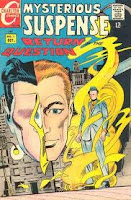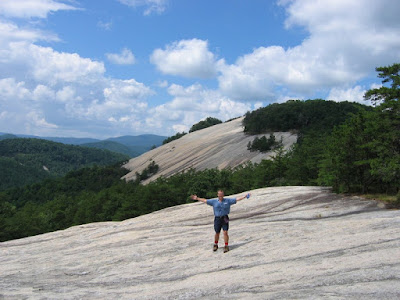When you enjoy art you have to take the creator of the  art along with what he or she has created. And in doing so, you should accept that creator, warts and all.
art along with what he or she has created. And in doing so, you should accept that creator, warts and all.
Often, I find myself enjoying the work of someone with whom I would not want to associate on any other level. For instance, I love reading the fiction and poetry of Jack Kerouac, William S. Burroughs, and Allen Ginsberg. But I wouldn’t have wanted to spend one minute in the  company of any of those men. Kerouac was a chronic drunk and a right wing jackass. William Burroughs was a murdering drug addict, and both he and Allen Ginsberg were pedophiles.
company of any of those men. Kerouac was a chronic drunk and a right wing jackass. William Burroughs was a murdering drug addict, and both he and Allen Ginsberg were pedophiles.
But I admire the artwork those creeps created.
I suppose this is how people who like the poetry of Ezra Pound must feel. They admire his skill as a poet, but remind themselves constantly of what a disgusting human he was.
 I consider the world of comic books and their creators to be important parts of Americana. Comic books are a uniquely American art form. Things similar to comic books appeared before America coalesced, but by and large the form is completely our own. It rose out of New York publishing and flowered in the 1930s and 1940s and continued to grow from then and survives today. It is an important literary and art form, especially for Americans.
I consider the world of comic books and their creators to be important parts of Americana. Comic books are a uniquely American art form. Things similar to comic books appeared before America coalesced, but by and large the form is completely our own. It rose out of New York publishing and flowered in the 1930s and 1940s and continued to grow from then and survives today. It is an important literary and art form, especially for Americans.
One great creator who came out of the second or third wave of creators spawned from the comic book industry was Steve Ditko. His work began to see print in the early 1950s, well after the pioneers of comics had established themselves, but relatively early in the history of comics. From the time I was an eight-year-old reading my Marvel Comic books, I admired Mr. Ditko’s style and would scour through the stacks of comics seeking out anything that he illustrated. His work was striking, imaginative, quirky, different. I liked it then and I continue to admire it now.
from the comic book industry was Steve Ditko. His work began to see print in the early 1950s, well after the pioneers of comics had established themselves, but relatively early in the history of comics. From the time I was an eight-year-old reading my Marvel Comic books, I admired Mr. Ditko’s style and would scour through the stacks of comics seeking out anything that he illustrated. His work was striking, imaginative, quirky, different. I liked it then and I continue to admire it now.
Even as a child I could tell that Ditko’s comic books were different in many ways. No one else drew like Ditko. There wasn’t another artist in the field who could understand anatomy the way he did and use that knowledge to adjust the images in such a way that one immediately recognized his work simply by glancing ever so briefly at a single panel. There was only one Ditko.
single panel. There was only one Ditko.
And of course the crowning achievement of his career was then, and remains, the  Amazing Spider-Man. There had never been anything like Spider-Man, and there really has never been anything to equal it since. Ditko covered every base when he created Peter Parker and his alter ego, the Amazing Spider-Man. Who has since come up with iconography to match that costume? Those colors? What writer/artist has conceived a hero imbued with the qualities of that fantastic kid? Why has no one ever been able to create a comic book that held the sense of tension and angst that filled the pages with such emotion?
Amazing Spider-Man. There had never been anything like Spider-Man, and there really has never been anything to equal it since. Ditko covered every base when he created Peter Parker and his alter ego, the Amazing Spider-Man. Who has since come up with iconography to match that costume? Those colors? What writer/artist has conceived a hero imbued with the qualities of that fantastic kid? Why has no one ever been able to create a comic book that held the sense of tension and angst that filled the pages with such emotion?
Also, beneath the surface, Ditko was teaching his readers subtle lessons. He was telling the boys and girls who were reading this book that people had moral choices to make with almost every decision. He was trying to tell his readers that there was a right way and a wrong way and that you had to think hard to take the proper path. These were messages that stuck with me from the days when I was a child. Comics were far deeper than many in those early days would admit. If Jack Kirby was every kid’s rabbi, then Steve Ditko had become the chief philosopher of comic book fandom.
Then, later in life as I came to inspect and read of Ditko’s personal  philosophies—things spelled out in no uncertain terms in his self-published comics—I discovered that his political and chief philosophical beliefs were quite the opposite of my own. I found the path that he chose to celebrate to be utterly fascist. His beliefs were (and apparently are) diametrically opposed to mine. I am not as far to the left as he is to the right, but I cannot imagine a person whose political and philosophical and moral ideas to be any more repugnant.
philosophies—things spelled out in no uncertain terms in his self-published comics—I discovered that his political and chief philosophical beliefs were quite the opposite of my own. I found the path that he chose to celebrate to be utterly fascist. His beliefs were (and apparently are) diametrically opposed to mine. I am not as far to the left as he is to the right, but I cannot imagine a person whose political and philosophical and moral ideas to be any more repugnant.
 And, yet, I still admire his work. I still enjoy his comics and I seek them out to read and see and collect. Why is that? What did I see in Ditko’s work that still attracts me?
And, yet, I still admire his work. I still enjoy his comics and I seek them out to read and see and collect. Why is that? What did I see in Ditko’s work that still attracts me?
There’s the obvious, yes. I just like looking at what he does with two dimensional images. He achieves things with pen and ink that no other comic book artist can equal. His work is different. It is singular.
And, in the end, Steve Ditko did teach me two important lessons, philosophically, that stuck with me from the times I was a kid and which echo now that I’m an adult:
He taught me that it’s important to be self-sufficient, and that one must take responsibility for one’s actions.
Those are two very good lessons, and universal ones. Those are things that transcend politics, and even the concepts of what is “good” and what is “right”.

 Toward the middle of the hike we stumbled upon this old chimney. The southern Appalachians have thousands of these old ruins--remains of farmsteads tucked away in coves and ridges all over the mountains and valleys.
Toward the middle of the hike we stumbled upon this old chimney. The southern Appalachians have thousands of these old ruins--remains of farmsteads tucked away in coves and ridges all over the mountains and valleys.



















































